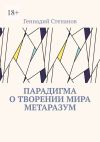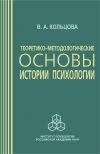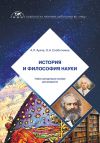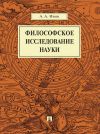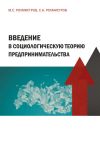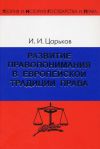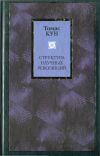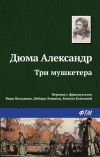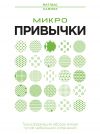
Автор книги: Елена Войниканис
Жанр: Юриспруденция и право, Наука и Образование
сообщить о неприемлемом содержимом
Текущая страница: 40 (всего у книги 41 страниц)
Еще раз подчеркнем, что стремление полагаться исключительно на законодательные нормы как последний оплот искомого «порядка», характерное для права интеллектуальной собственности, не соответствует общим тенденциям развития права. Современное право вынуждено взаимодействовать с другими нормативными системами, вступая с ними либо в открытый конфликт, либо в продуктивный диалог. И поскольку развитие «мягкого права» в последнее десятилетие стало неотъемлемой частью правового дискурса, можно сказать, что право все более серьезно и ответственно относится к своей роли объединяющего и координирующего центра для различных нормотворческих усилий. В праве интеллектуальной собственности данная тенденция также присутствует и, как мы полагаем, будет набирать свою силу.
Наш общий вывод заключается, следовательно, в том, что та система регулирования интеллектуальной собственности, к которой мы стремимся, свободная от непримиримых противоречий и органичная для информационного общества, должна отвечать как минимум двум критериям: балансу интересов и гибкости регулирования.
Список использованной литературы
1. Aarnio A. Paradigms in Legal Dogmatics. Toward a Theory of Change and Progress in Legal Science // Proceedings of the Conference on Legal Theory. Ed. by A. Peczenik, L. Lindahl and B. van Roermund. Dordrecht: Reidel, 1984. P. 25–38.
2. Abrams M.H. The Mirror and the Lamp: Romantic Theory and the Critical Tradition. New York: Oxford University Press, 1953.
3. Abramson B. Digital Phoenix: Why the Information Economy Collapsed and How It Will Rise Again. The MIT Press, 2005.
4. Alexy R. On the Structure of Legal Principles // Ratio Juris. 2000. Vol. 13 № 3. P. 294–304.
5. Alexy R. On Balancing and Subsumption. A Structural Comparison // Ratio Juris. 2003. Vol. 16 № 4. P. 433–449.
6. Alexy R. Theorie der Grundrechte. Baden-Baden, 1985.
7. Avila H.B. Theory of legal principles. Springer, 2007.
8. Baldini N. Negative effects of university patenting: Myths and grounded evidence // Scientometrics. 2008. Vol. 75. № 2. P. 289–311.
9. Bavasso A. Communications in EU antitrust law: market power and public interest. Kluwer Law International, 2003. P. 160–171.
10. Benkler Y. The wealth of networks: how social production transforms markets and freedom. Yale University Press, 2006.
11. Benkler Y. Commons-Based Strategies and the Problems of Patents // Science. 20 August 2004. Vol. 305. № 5687. P. 1110–1111.
12. Benkler Y. Sharing Nicely: On Shareable Goods and the Emergence of Sharing as a Modality of Economic Production // The Yale Law Journal. 2004. Vol. 114. P. 273–358.
13. Bennett C.J., Raab C.D. The Governance of Privacy. Ashgate, 2003.
14. Benyekhlef K., Gelinas F. The International Experience in regard to Procedures for Settling Conflicts relating to Copyright in the Digital Environment // UNESCO Copyright Bulletin, Vol. XXXV. 2001. № 4. P. 5–21.
15. Berman P.S. From International Law to Law and Globalization // Columbia Journal of Transnational Law. 2005. Vol. 43. P. 485–556.
16. Berman P.S. The globalization of jurisdiction // University of Pennsylvania law review. 2002. Vol. 151. № 2. P. 311–545.
17. Bollier D. Why We Must Talk about the Information Commons // Law Library Journal. 2004. Vol. 92. Issue 2, 2004. P. 267–282.
18. Boyles J. Shamans, software, and spleens: law and the construction of the information society. Harvard University Press, 1996.
19. Bracha O. The Commodification of Patents 1600–1836: How Patents Became Rights and Why We Should Care // (2005) 38 Loyola of Los Angeles Law Review. 2005. Vol. 38. P. 177–244.
20. Burke J. Connections. Macmillan London Limited, 1987.
21. Burrell R., Coleman A. Copyright Exceptions: The Digital Impact. Cambridge University Press, 2005.
22. Cai M. Madey v. Duke University: Shattering the Myth of Universities’ Experimental Use Defense // Berkeley Technology Law Journal. 2004. Vol. 19. Issue 1. P. 175–192.
23. Calabresi G. Some Thoughts on Risk Distributions and the Law of Torts // The Yale Law Journal. 1961. Vol. 70. P. 499–553.
24. Canaris C.-W. Systemdenken und Systembegriff in der Jurisprudenz. Berlin: Duncker und Humblot, 1983.
25. Castells M. The rise of the network society. With a New Preface. Vol. I: The Information Age: Economy, Society, and Culture. Publisher: Wiley-Blackwell, 2010.
26. Coase R. The Problem of Social Costs // Journal of Law & Economics. 1960. Vol. 3. P. 1–44.
27. Concise international and European IP law: TRIPS, Paris Convention, European enforcement and transfer of technology. Ed. Cottier T., Veron P. Kluwer Law International, 2008.
28. Copyright Enforcement and the Internet. Edited by Irini A. Stamatoudi. Kluwer Law International, 2010.
29. David R. The Methods of Unification // American Journal of Comparative Law. 1968. № 16. P. 13–27.
30. Denneson T.J. The Definitional Imbalance Between Copyright and the First Amendment // William Mitchell Law Review. 2004. Vol. 30. P. 895–929.
31. Dewey J. Logical Method and Law // The Essential Dewey: Pragmatism, education, democracy. Vol. 1. Ed. by John Dewey, Larry Hickman, Thomas M. Alexander. Indiana University Press, 1998. P. 355–362.
32. Economics, Law and Intellectual Property: Seeking Strategies for Research and Teaching in a Developing Field. Granstrand, Ove (Ed.). Kluwer Academic, 2003.
33. Ekstrand V.S. News Piracy and the Hot News Doctrine: Origins in Law and Implications for the Digital Age. New York: LFB Scholarly Publishing, 2005.
34. Ewing J. Copyright and authors // First Monday. 2003. Vol. 8. № 10.
35. Fichte J.G. Beweis der Unrechtmäßigkeit des Büchernachdrucks. Ein Räsonnement und eine Parabel // Johann Gottlieb Fichte’s Sämmtliche werke, Vol. 8. Veit und Comp., 1846.
36. Final Report on Digital Preservation, Orphan Works, and Out-of-Print Works // i2010: Digital Libraries High Level Expert Group – Copyright Subgroup, 2008.
37. Freeman R.B. Does Globalization of the Scientific/Engineering Workforce Threaten U.S. Economic Leadership? // Innovation Policy and the Economy. The MIT Press, 2006. P. 123–157.
38. Fuller L. The Morality of Law. New haven, 1964.
39. Galler B. A. Software and Intellectual Property Protection: Copyright and Patent Issues for Computer and Legal Professionals. Westport, Quorum Books, 1995.
40. Goldman D.B. Globalisation and the Western Legal Tradition: Recurring Patterns of Law and Authority. Cambridge University Press, 2008.
41. Goldstein P. International copyright: principles, law, and practice. Oxford University Press, NY, 2001.
42. Goldstein P. International copyright: principles, law, and practice. Oxford, 2001.
43. Grechenig K.R. and Gelter M. The Transatlantic Divergence in Legal Thought: American Law and Economics vs. German Doctrinalism // Hastings International and Comparative Law Review. 2008. Vol. 31. № 1. P. 295–360.
44. Helpman, E. Innovation, imitation, and intellectual property rights // Econometrica. 1993. Vol. 61 (6). P. 1247–1280.
45. Holzapfel H., Sarnoff J.D. A cross-Atlantic dialog on experimental use and research tools //IDEA – The Intellectual Property Law Review. 2008. Vol. 48. № 2. P. 123–224.
46. Hugenholtz P.B. Code as code, or the end of intellectual property as we know it // Maastricht Journal of European and Comparative Law. 1999. Vol. 6. № 3. P. 308–318.
47. Hugenholtz P.B. Codes of Conduct and Copyright Enforcement in Cyberspace // Copyright enforcement and the internet. Information law series. Vol. 21. Kluwer Law International, 2010. P. 303–320.
48. Hugenholtz P.B. Why the Copyright Directive is unimportant, and possibly invalid // European intellectual property review. Vol. 11, 2000. P. 499–505.
49. lies K. A comparative analysis of the impact of experimental use exemptions in patent law on incentives to innovate //Northwestern Journal of Technology and Intellectual Property. 2005. Vol. 4. № 1. P. 61–82.
50. Information ethics: privacy and intellectual property. Ed. by Freeman L., Peace A.G. Information Science Publishing, 2005.
51. Innovationskultur in der digitalen Gesellschaft. Eine Publikation des Internet & Gesellschaft Collaboratory. Abschlussbericht, Juli 2010.
52. Intellectual property and human rights: a paradox. Ed. by Willem Grosheide. Edward Eigar Publishing, 2010.
53. Inter-Sessional Intergovernmental Meeting on a Development Agenda For WIPO. WIPO. № IIM/3/3Third Session Geneva, July 20 to 22, 2005.
54. Jaszi P. Toward a Theory of Copyright: The Metamorphoses of «Authorship» // Duke Law Journal. 1991. № 2. P. 455–502.
55. Johnson D.R., Post D.G. Law and Borders – The Rise of Law in Cyberspace // Stanford Law Review. 1996. Vol. 48. P. 1367–1402.
56. Jones R.H. The Myth of the Idea / Expression Dichotomy in Copyright Law // Pace Law Review. Summer 1990. Vol. 10. № 3. P. 551–607.
57. Kahan D.M. The Logic of Reciprocity: Trust, Collective Action, and Law // Michigan Law Review. 2003. Vol. 102. № 1. P. 71–103.
58. Kapczynski A. Access to Knowledge: A Conceptual Genealogy // Access to knowledge in the age of intellectual property. Ed. by Gaelle Krikorian and Amy Kapczynski. Zone books, NY, 2010.
59. Katz M.L., Shapiro C. Network Externalities, Competition, and Compatibility // American Economic Review. 1985. Vol. 75. P. 424–440.
60. Katz M.L., Shapiro C. Systems Competition and Network Effects // Journal of Economic Perspectives. 1994. Vol. 8. № 2. P. 93–115.
61. Kelty C. Two Bits. San Francisco: Ignatius Press, 2008.
62. Koops B.-J. Criteria for Normative Technology: An Essay on the Acceptability of 'Code as Law’ in Light of Democratic and Constitutional Values // Regulating Technologies. Ed. by Roger Browns word and Karen Yeung. Hart Publishing, 2008. P. 157–174.
63. Kostylo J. From Gunpowder to Print: The Common Origins of Copyright and Patent // Privilege and property: essays on the history of copyright. Ed.: Ronan Deazley, Martin Kretschmer, Lionel Bently. Open Book Publishers, 2010. P. 21–50.
64. Kovacic W.E. Competition Policy in the European Union and the United States: Convergence or Divergence? //Competition Policy in the EU. Fifty Years on from the Treaty of Rome. Ed. by Xavier Vives. Oxford University Press Inc., New York, 2009. P. 314–343.
65. Kuhn T. The road since structure: philosophical essays, 1970–1993, with an autobiographical interview. The University of Chicago Press, 2000.
66. Landes W., Posner R.A. The Economic Structure of Intellectual Property Law, Cambridge, MA: Harvard University Press, 2003.
67. Landow P.G. Hypertext 3.0: Critical Theory and New Media in an Era of Globalization. L.: The Johns Hopkins University Press, 2006.
68. Lee P. Patent Law and the Two Cultures //Yale law journal. 2010. Vol. 120. P. 2–82.
69. Lemley M.A. The Myth of the Sole Inventor // Michigan Law Review. 2012. Vol. ПО. P. 709–760.
70. Lemley M. Should a Licensing Market Require Licensing? // Law and Contemporary Problems. 2007. Vol. 70. Issue 2. P. 185–204.
71. Lemley M.A., McGowan D. Legal Implications of Network Economic Effects // California Law Review. 1998. Vol. 86. P. 479–611.
72. Levinson S. Strolling Down the Path of the Law (and Toward Critical Legal Studies?): The Jurisprudence of Richard Posner // Columbia Law Review. 1991. Vol. 91. № 5. P. 1221–1252.
73. Lodder A.R., Kaspersen H.W.K. eDirectives: guide to European Union law on e-commerce. Kluwer Law International, 2002.
74. Long C. Patents and Cumulative Innovation // Washington University Journal of Law & Policy. 2000. Vol. 2. P. 229–246.
75. Mancini A. Internet Justice: Philosophy of Law for the Virtual World. Buenos Books America, 2005.
76. Mandel G. N. Left-Brain versus Right-Brain: Competing Conceptions of Creativity in Intellectual Property Law // University of California Davis Law Review. 2010. Vol. 44. P. 283–361.
77. Masterman M. The Nature of a Paradigm // Criticism and the Growth of Knowledge / Ed. by I. Lakatos and A. Musgrave. Cambridge, MA: Harvard Press, 1970.
78. Mauss M. Essai sur le don. Forme et raison de l’echange dans les societes archa'iques // Mauss M. Sociologie et anthropologie. Paris: Les Presses universitaires de France, 1968.
79. Mazzacano P. The Lex Mercatoria as Autonomous Law. Comparative Research in Law and Political Economy. 2008. Vol. 04. № 6. P. 1–14.
80. McGee W.C. Data Base Technology // IBM Journal of Research and Development, 1981. Vol. 25. № 5. P. 505–519.
81. McLeod K. Freedom of expression: resistance and repression in the age of intellectual property. First University of Minnesota Press edition, 2007.
82. Menell P.S. Intellectual Property: General Theories // Encyclopedia of Law & Economics: Vol. II. Edward Elgar: Cheltenham, UK, 2000.
83. Mgbeoji I. The Juridical Origins of the International Patent System: Towards a Historiography of the Role of Patents in Industrialization // Journal of the History of International Law. 2003. Vol. 5. P. 403–422.
84. Michaels R. The True Lex Mercatoria: Law Beyond the State // Indiana Journal of Global Legal Studies. 2008. Vol. 14. № 2. P. 447–468.
85. Mifsud Bonnici J.P. Self-Regulation In Cyberspace. The Hague: TMC Asser Press, 2008.
86. Mokyr J. Intellectual Property Rights, the Industrial Revolution, and the Beginnings of Modern Economic Growth // American Economic Review. 2009. Vol. 99. Issue 2. P. 349–55.
87. Mokyr J. Intellectual Property Rights, the Industrial Revolution, and the Beginnings of Modern Economic Growth // American Economic Review. 2009. Vol. 99(2). P. 349–355.
88. Mokyr J. The lever of Riches: Technological Creativity and Economic Progress. New York, 1990.
89. Mowery D.C., Nelson R.R., Sampat B.N., Ziedonis A.A. The Growth of Patenting and Licensing by U.S. Universities: An Assessment of the Effects of the Bayh-Dole Act of 1980 // Research Policy. 2001. Vol. 30. Issue 1. P. 99–119.
90. Naugle D.K. Worldview: the history of a concept. Wm. B. Eerd-mans Publishing, 2002.
91. Networks: Legal Issues of Multilateral Co-operation. Ed. by: Marc Amstutz M., Teubner G. UK, Hart Publishing, 2009.
92. Nink J. Rechtliche Rahmenbedingungen von Serviceorientierten Architekturen mit Web Services. Universitätsverlag Göttingen, 2010.
93. Non-State Actor Dynamics in International Law: From Law-Takers to Law-Makers. Ed. by Math Noortmann, and Cedric Ryngaert. Ashgate, 2010.
94. Online Intermediaries: Assessing the Economic Impact of the EU’s Online Liability Regime. Copenhagen Economics. January 2012.
95. Ortino F., Ortino M. Law of the Global Economy: In Need of a New Methodological Approach? // International Economic Law: The State and Future of the Discipline. Ed. by Colin B. Picker, Isabella D. Bunn and Douglas W. Arner. Hart Publishing, 2008. P. 89–106.
96. Patterson R. Copyright in Historical Perspective. Nashville, Vanderbilt University Press, 1968.
97. Pearson H. Origins of law and economics: the economists’ new science of law, 1830–1930. Cambridge University Press, New York, 1997.
98. Peczenik A. On Law and Reason. Springer, 2008.
99. Peer-to-Peer File Sharing and Secondary Liability in Copyright Law. Ed. by Alain Strowel. Edward Elgar Publishing, 2009.
100. Peguera M. The DMCA Safe Harbors and Their European Counterparts: A Comparative Analysis of Some Common Problems // Columbia Journal of Law & the Arts. 2009. Vol. 32. P. 481–512.
101. Petra M. How Do Patent Laws Influence Innovation? Evidence from Nineteenth-Century World’s Fairs //American Economic Review. 2005. Vol. 95. № 4. P. 1214–1236.
102. Philip E. Johnson Reason in the balance: the case against naturalism in science, law and education. Intervarsity Press, 1995.
103. Posner R.A. The Problematics of Moral and Legal Theory. Harvard University Press, 1999.
104. Posner R. A. Law, Pragmatism, and Democracy. Harvard University Press, 2003.
105. Priest G.L. What Economists Can Tell Lawyers About Intellectual Property // Research In Law And Economics, The Economics Of Patents And Copyrights. Ed. by John Palmer. 1986. Vol. 8. P. 19–24.
106. Primary Sources on Copyright (1450–1900). Ed. by L. Bently & M. Kretschmer, 2008.
107. Privilege and property: essays on the history of copyright. Ed.: Ronan Deazley, Martin Kretschmer, Lionel Bently. Open Book Publishers, 2010.
108. Proposal by Argentina and Brazil for the establishment of a development agenda for WIPO. Wipo General Assembly. Thirty-First (15th Extraordinary) Session. WIPO № WO/GA/31/ll.Geneva, September 27 to October 5, 2004.
109. Radin M. J. Humans, Computers and Binding Commitment // Indiana Law Journal. 2000. Vol. 75. Issue 4. P. 1125–1162.
110. Raymond E.S. The Cathedral and the Bazaar. San Francisco: Ignatius Press, 1999.
111. Reed D.P. The Law of the Pack // Harvard Business Review. 2001. Vol. 79. № 2. P. 23–25.
112. Regulating the global information society. Ed. by Christopher T. Marsden. Routledge, 2000.
113. Regulating Technologies: Legal Futures, Regulatory Frames and Technological Fixes. Ed. by Roger Brownsword, Karen Yeung. Hart Publishing, 2008.
114. Reichman J. H., Samuelson P. Intellectual Property Rights in Data? // Vanderbilt Law Review 50, 1997. P. 50–166.
115. Reidenberg J.R. Fourth Annual Baker Botts Lecture: The Rule of Intellectual Property Law in the Internet Economy // Houston Law Review. 2007. Vol. 44. № 4. P. 1074–1095.
116. Reidenberg J.R. Lex Informatica: The Formulation of Information Policy Rules through Technology // Texas Law Review. 1998. № 3. P. 553–594.
117. Reinbothe J., Lewinski S. The WIPO Treaties 1996. L., 2002.
118. Research Handbook on Intellectual Property and Competition Law. Ed. by Josef Drexl. Edward Elgar Publishing, 2008.
119. Rose M. Authors and Owners: The Invention of Copyright. L., 1993.
120. Rose M. Authors and Owners: The Invention of Copyright. Harvard University Press, 1993.
121. Rosen L. Open Source Licensing: Software Freedom and Intellectual Property Law. New Jersey: Pearson Professional Education, 2005.
122. Rowley Ch.K. An intellectual history of law and economics: 1739–2003 // The Origins of Law and Economics: Essays by the Founding Fathers. Edward Elgar Publishing, 2007. P. 3—32.
123. Rowland D., Macdonald E. Information Technology Law. Routledge, 2005.
124. Rubini L. Microsoft on Trial: Legal and Economic Analysis of a Transatlantic Antitrust Case. Edward Elgar Publishing, 2010. P. 205–257.
125. Sailer R.P. Personal Patronage under the Early Empire. Cambridge, 1982.
126. Samuelson P. The Uneasy Case for Software Copyrights Revisited // George Washington Law Review Arguendo. 2011. Vol. 79. Issue 6. P. 1745–1782.
127. Samuelson P. Digital Rights Management [and, or, vs.] the Law // Magazine. Communications of the ACM. 2003. Vol. 46. Issue 4. P. 41–45.
128. Samuelson P., Davis R., Kapar M.D., Reichman J.H. A manifesto concerning the legal protection of computer programs // Columbia Law Review. 1994. Vol. 94. № 8. P. 2308–2431.
129. Schindler G. Wagging the Dog? – Reconsidering Antitrust-Based Regulation of IP-Licensing // Marquette Intellectual Property Law Review. 2008. Vol. 12. № 1. P. 49–88.
130. Science and Technology in Judicial Decision Making: Creating Opportunities and Meeting Challenges. A report of the Carnegie Commission of Science Technology and Government. Diane Publishing Company, 1993.
131. Second progress report on the digitisation and online accessibility of cultural material and on digital preservation in the European Union. 2010.
132. Senden L. Soft Law in European Community Law. Hart Publishing Ltd., 2004.
133. Seville C. EU Intellectual Property Law and Policy. Edward Elgar, 2009.
134. Sherman B., Bently L. The Making of Modern Intellectual Property Law: The British Experience. Cambridge University Press, 1999.
135. Sollfrank К. Performing the Paradoxes of Intellectual Property. A Practice-led Investigation into the Conflicting Relationship between Copyright and Art. The University of Dundee, Duncan of Jordanstone College of Art and Design. November 2011.
136. Stiglitz J.E. More Instruments and Broader Goals: Moving toward the Post-Washington Consensus // Wider Perspectives on Global Development. Ed. by United Nations University-World Institute for Development Economics Research. Palgrave MacMillan, Houndmills, 2005. P. 16–48.
137. Stiglitz J.E. Economic Foundations Of Intellectual Property Rights // Duke Law Journal. 2008. Vol. 57. P. 1693–1723.
138. Stiglitz J.E. Making globalization work. Norton & Company, 2006.
139. Stiglitz J.E. The Overselling of Globalization // Globalization: What’s New? New York: Columbia University Press, 2005. P. 229.
140. Teubner G. Breaking Frames Economic Globalization and the Emergence of lex mercatoria // European Journal of Social Theory. 2002. Vol. 5. № 2. P. 199–217.
141. The British Industrial Revolution: An Economic Perspective. Ed. by Joel Mokyr. Westview Press, 1999.
142. The essential Holmes. Ed. by Richard Posner. University of Chicago Press, 1990.
143. The History of Information Security: A Comprehensive Handbook. Ed. Karl Maria Michael de Leeuw, Jan Bergstra. Elsevier Science. 2007.
144. The interface between Intellectual Property rights and competition policy. Ed. S.D. Anderman. Cambridge University Press, New York, 2007.
145. The New Renaissance, Report of the ‘Comite des Sages’ Reflection group on bringing Europe’s Cultural Heritage online. Brussels, 2011.
146. Understanding Knowledge as a Commons. MIT, 2007.
147. Välimäki M. The Rise of Open Source Licensing: A Challenge to the Use of Intellectual Property in the Software Industry. Helsinki: Turre Publishing, 2005.
148. Van Dijk J. The Network Society: Social Aspects of New Media. SAGE, 2005.
149. Van Dijk T.A. News as discourse. L. Erlbaum Associates, 1988.
150. Veljanovski C. G. Economic principles of law. Cambridge University Press, 2007.
151. Westkamp G. Der Schutz von Datenbanken und Informa-tionssamlungen im britischen und deutschen Recht. Verlag C.H.Beck Muenchen, 2003.
152. Williams R. Culture and Society: 1780–1950. Anchor Books, 1960.
153. Woodmansee M. The Genius and the Copyright: Economic and Legal Conditions of the Emergence of the «Author» // Eighteenth-Century Studies. 1984. Vol. 17. № 4. P. 425–448.
154. Александровский Ю.В. Авторское право. Исторический очерк, законодательные мотивы и разъяснения. СПб.: Товарищество по изданию новых законов, 1911.
155. Андерсон К. Длинный хвост: новая модель ведения бизнеса. М.: Вершина, 2008.
156. Бальсевич А.А… Экономика права: предпосылки возникновения и история развития // Вопросы экономики. 2008. № 12. С. 60–71.
157. Бахтин М.М. Эстетика словесного творчества. 2-е изд. М.: Искусство, 1986.
158. Беляева Е.Н., Доронин М.Г. Объект интеллектуальной собственности: сущность и понятие // Проблемы правовой информатизации. 2007. № 1. С. 37–40.
159. Бентам И. Введение в основания нравственности и законодательства. М.: РОССПЭН, 1998.
160. Берман Г.Дж. Западная традиция права: эпоха формирования. М.: Изд-во МГУ; Изд. группа ИНФРА-М – НОРМА, 1998.
161. Брагинский М.И. Договор подряда и подобные ему договоры. М.: Статут, 1999.
162. Будник Р. А. Позитивное право авторов как средство развития информационного капитала // Информационное общество. 2011. № 5. С. 37–45.
163. Верещагина Т.Н. Парадигматический феномен в философии. Дис…. канд. филос. наук. М., 2000.
164. Вернадский В.И. О научном мировоззрении //На переломе. Философские дискуссии 20-х годов. Философия и мировоззрение. М., 1990. С. 180–203.
165. Воротилина Т.Л. Постнеклассические тенденции в западной и российской традициях правопонимания. Дис… канд. юрид. наук. М., 2002.
166. Гаврилов Э.П. Советское авторское право: Основные положения. Тенденции развития. М.: Наука, 1984.
167. Гаврилов Э.П. Авторское право и содержание произведения // Патенты и лицензии. 2009. № 7. С. 28–31.
168. Гирин Л.Е. Глобализация и проблемы национального суверенитета // Материалы «круглого стола», посвященного Дню философии ЮНЕСКО / под общ. ред. И.И. Ивановой. Бишкек, 2004. С. 39–47.
169. Голоскоков Л. В. О перспективах развития «сетевого» права в России //Правоведение. 2006. № 3. С. 218–229.
170. Гордон М.В. Советское авторское право. М.: Юрид. лит., 1955.
171. Дмитриева А.В., Савельев Д.А. Российское законодательство и баланс интересов правообладателей, пользователей и провайдеров в цифровую эпоху. СПб.: ИПП ЕУ СПб., 2011.
172. Дозорцев В. А. Принципиальные черты права собственности в гражданском кодексе // Гражданский кодекс России. Проблемы. Теория. Практика: Сборник памяти С.А. Хохлова / отв. ред. А. Л. Маковский; М.: Родос, 1998. С. 228–270.
173. Дозорцев В.А. Интеллектуальные права: Понятие. Система. Задачи кодификации: сб. статей. М.: Статут, 2003.
174. Еременко В.И. О правовой охране программ для ЭВМ в Российской Федерации // Законодательство и экономика. 2010. № 8. С. 51–70.
175. Еременко В.И. К вопросу о личных неимущественных правах авторов произведений // Адвокат. 2010. № 7. С. 27–37.
176. Еременко В.И. Реформирование российского антимонопольного законодательства // Законодательство и экономика. 2012. № 4. С. 5–20.
177. Ефремов А.А. Электронное правительство и международное право //Труды XIV Всероссийской объединенной конференции «Интернет и современное общество» (IMS-2011). СПб., 2011. С. 190–196.
178. Жак Деррида в Москве: деконструкция путешествия / пер. с фр. и англ. / предисл. М.К. Рыклина. М.: РИК «Культура», 1993.
179. Займовский С.Г. Авторское право. М.: Типография Берты Смирновой, 1914.
180. Иванов Д.В. Эволюция концепции глобализации // Проблемы теоретической социологии. 2003. Вып. 4. С. 174–197.
181. Ионас В.Я. Критерий творчества в авторском праве и судебной практике. М.: Юрид. лит., 1963.
182. Ионас В.Я. Произведения творчества в гражданском праве. М.: Юрид. лит., 1972.
183. Иоффе О.С. Обязательственное право. М., 1975.
184. Калятин В.О. Соглашения о передаче технологий: новое в европейском законодательстве // Патенты и лицензии. 2005. № 3. С. 33–38.
185. Калятин В.О. О некоторых тенденциях развития законодательства об ответственности интернет-провайдеров // Закон. 2012. № 7. С. 27–34.
186. Карапетов А.Г., Савельев А.И. Свобода договора и ее пределы. Т. 1. М.: Статут, 2012.
187. Карапетов А.Г. Экономические основания принципа свободы договора // Вестник гражданского права. 2012. № 3. С. 66–154.
188. Карапетов А.Г. Борьба за признание судебного правотворчества в европейском и американском праве. М.: Статут, 2011.
189. Кашанин А.В. Развитие учения о форме и содержании произведения в доктрине авторского права. Проблема охраноспособности содержания научных произведений // Вестник гражданского права. 2010. № 2. С. 68–138.
190. Кашанин А.В. Развитие механизма демаркации в авторском праве континентальной Европы // Вестник гражданского права. 2011. № 3. С. 61–101.
191. Козлихин И.Ю. О нетрадиционных подходах к праву // Известия вузов. Правоведение. 2006. № 1. С. 31–40.
192. Койре А. Очерки истории философской мысли: О влиянии философских концепций на развитие научных теорий. М.: Прогресс, 1985.
193. Комментарий к четвертой части Гражданского кодекса Российской Федерации / под ред. А.Л. Маковского. М.: Статут, 2008.
194. Корнеев В.А. Программы для ЭВМ, базы данных и топологии интегральных микросхем как объекты интеллектуальных прав. М.: Статут, 2010.
195. Коркунов Н.М. Лекции по общей теории права. СПБ., 1914.
196. Кропоткин П.А. Взаимная помощь как фактор эволюции. Нью-Йорк, 1919.
197. Кузнецова О.А. Нормы-принципы российского гражданского права. М.: Статут, 2006.
198. Кун Т. Структура научных революций. С вводной статьей и дополнениями 1969 г. М.: Прогресс, 1977.
199. Курчеев В.С., Тюгашев Е.А. Глобальное видение права // Вестник НГУ. Сер.: Право. Т. 1. Вып. 1. Новосибирск, 2005. С. 4–6.
200. Лейст О.Е. Сущность права. М.: Зерцало, 2008.
201. Майданов А.С. Непарадигмальные проблемы, их источники и способы постановки // Эволюция, культура, познание. М.: ИФРАН, 1996. С. 93–110.
202. Мальцев Г.В. Понимание права. Подходы и проблемы. М., 1999.
203. Мартышин О.В. Совместимы ли основные типы понимания права? // Государство и право. 2003. № 6. С. 19–20.
204. Матвеев А.Г. Российская модель права на неприкосновенность произведения // Вестник Пермского университета. Юрид. науки. 2011. Вып. 4 (14). С. 91–99.
205. Монахов В.Н. Библиотеки в цифровую эпоху (правовые аспекты) // Право. Журнал ВШЭ. 2010. № 3. С. 82–103.
206. Мосс М. Очерк о даре // Общества, обмен, личность. М.: Восточная литература, 1996.
207. Невважай И.Д. Типы правовой культуры и формы правосознания // Правоведение. 2000. № 2. С. 23–31.
208. Новгородцев П.И. Введение в философию права. Кризис современного правосознания. Сер.: Классики истории и философии права. СПб.: Лань, 2000.
209. Огурцов А.П. Постмодернизм в контексте новых вызовов науки и образования // Вестник Самарской гуманитарной академии. Вып. «Философия. Филология». 2006. № 1 (4). С. 3–27.
210. Одинцова М.И. Экономика права. М.: ГУ-ВШЭ, 2007.
211. Павлова А.Б. Понятие парадигмальности в пифагорейской космогонической традиции. Дис… канд. филос. наук. Екатеринбург, 2005.
212. Павлова Е.А. Шилохвост О.Ю. Четвертая часть ГК: итоги переговоров по ВТО // Патенты и лицензии. 2008. № 7. С. 2–9.
213. Пиленко А. Новый закон об авторском праве. (Текст закона, сопоставление с прежде действовавшим правом, подготовительные материалы). СПб., 1911.
214. Пиленко А.А. Право изобретателя. М.: Статут, 2001.
215. Полани М. Личностное знание. М.: Прогресс, 1985.
216. Поланьи К. Аристотель открывает экономику // Истоки. Экономика в контексте истории и культуры. М.: ГУ ВШЭ, 2004. С. 9–51.
217. Поланьи К. Великая трансформация: политические и экономические истоки нашего времени. СПб.: Алетейя, 2002.
218. Поляков А. В. Петербургская школа философии права и задачи современного правоведения // Правоведение. 2000. № 2. С. 4–23.
219. Поляков А.В. Общая теория права: феноменолого-коммуникативный подход: курс лекций. 2-е изд. СПб.: Юридический центр Пресс, 2003.
220. Рассудовский, В. А. Заимствование и плагиат в авторском праве // Правоведение. 1979. № 3. С. 54–61.
221. Рейнгольд Г. Умная толпа. М., 2006.
222. Рорти Р. Случайность, ирония и солидарность. М.: Русское феноменологическое общество, 1996.
223. Савельев А.И. Лицензирование программного обеспечения в России. Законодательство и практика. М., 2012.
224. Свободное программное обеспечение в организации. Сб. материалов. М.: INFO-FOSS.RU, 2008.
Правообладателям!
Это произведение, предположительно, находится в статусе 'public domain'. Если это не так и размещение материала нарушает чьи-либо права, то сообщите нам об этом.